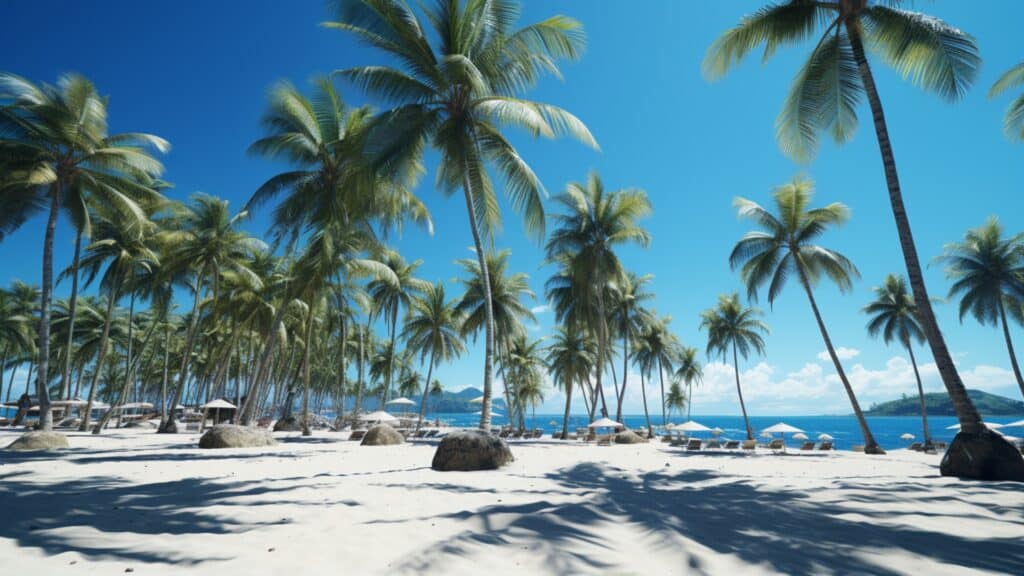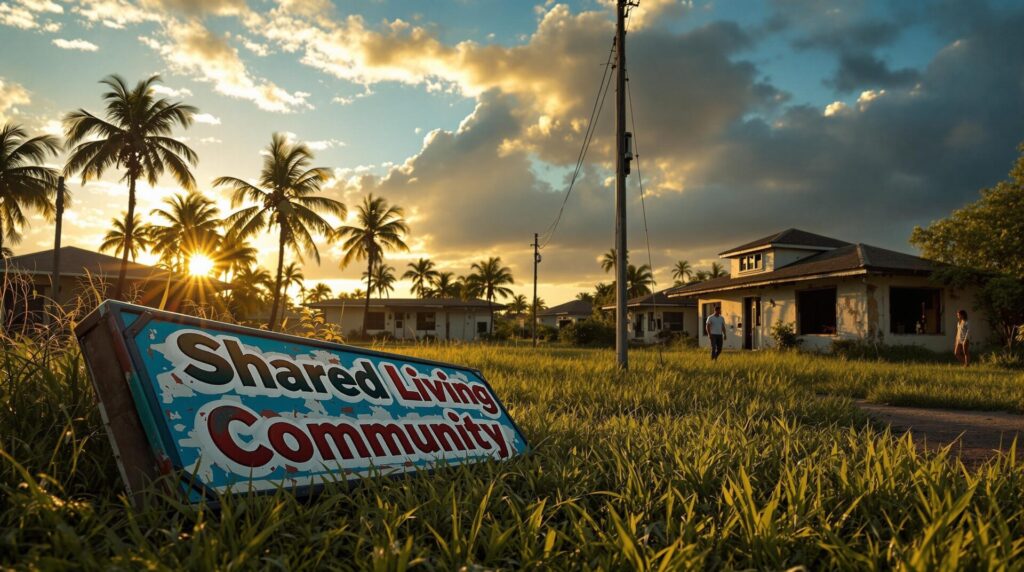Key Takeaways
Tropical real estate investments offer significant benefits including high returns, diversification of portfolio, lifestyle perks, lower cost of living, tax incentives, and potential for second citizenship or residency. This can make it a lucrative choice for investors looking to diversify their portfolio or seeking a lifestyle change.
It’s crucial for investors to understand the dynamics of the tropical real estate market and to consider factors such as location, legal and regulatory norms, and financing options. Successful investment involves thorough due diligence, working with local real estate professionals, and diversifying the types of properties within the portfolio.
Despite the challenges like managing remote properties, dealing with climate and natural disasters, and understanding cultural and language differences, the future of tropical real estate investment looks promising. Trends include sustainable and eco-friendly properties, an upsurge in remote work leading to increased demand, a growing tourism industry, and infrastructure development.
How to Invest in Tropical Real Estate: The Tropical Real Estate Investment Lifestyle
Simply stated, the way to invest in tropical real estate is to conduct thorough research on the locations you’re considering while taking into account local laws and regulations, along with your desired lifestyle needs.
To learn more comprehensive details about investing in tropical real estate, continue reading.
Why Invest in Tropical Real Estate
When you originally set out to invest in real estate, the thought of real estate investment opportunities in exotic locations may have not entered your mind as an option.
As you proceed, you will learn that investing in tropical real estate offers a variety of advantages and benefits.
Let’s see why you may want to buy real estate in the tropics.
Reasons why you should consider real estate investing in tropical locations:
1. Potential for High Returns: Tropical regions are often popular tourist destinations, attracting visitors from all over the world. This high demand for accommodations creates a great opportunity for investors to generate high rental income and enjoy significant returns on their investments.
2. Strong Tourism Market: Tropical locations are known for their natural beauty, pristine beaches, and vibrant culture, making them attractive to tourists. This consistent influx of visitors ensures a steady stream of rental income and makes tropical real estate a valuable asset.
3. Long-term Appreciation: Tropical regions typically experience steady appreciation in property values over time. As the popularity of the location grows and infrastructure improves, the value of your investment is likely to increase, providing a long-term financial benefit.
4. Diversification of Investment Portfolio: Investing in tropical real estate allows you to diversify your investment portfolio, reducing risk and increasing potential returns. By having a mix of different assets, you can minimize the impact of market fluctuations and protect your overall investment portfolio.
5. Lifestyle Benefits: Investing in tropical real estate not only provides financial benefits but also offers a unique and desirable lifestyle. You can enjoy the benefits of owning a vacation property in a beautiful tropical location, which can be used for personal vacations or rented out when not in use.
The way to invest in tropical real estate is to choose the location based on your needs, budget, and desired lifestyle, along with thorough due diligence of the local real estate market and informed industry professionals.
Want to know the details of how to do that?
Continue reading for all you need to know about how to invest in tropical real estate.
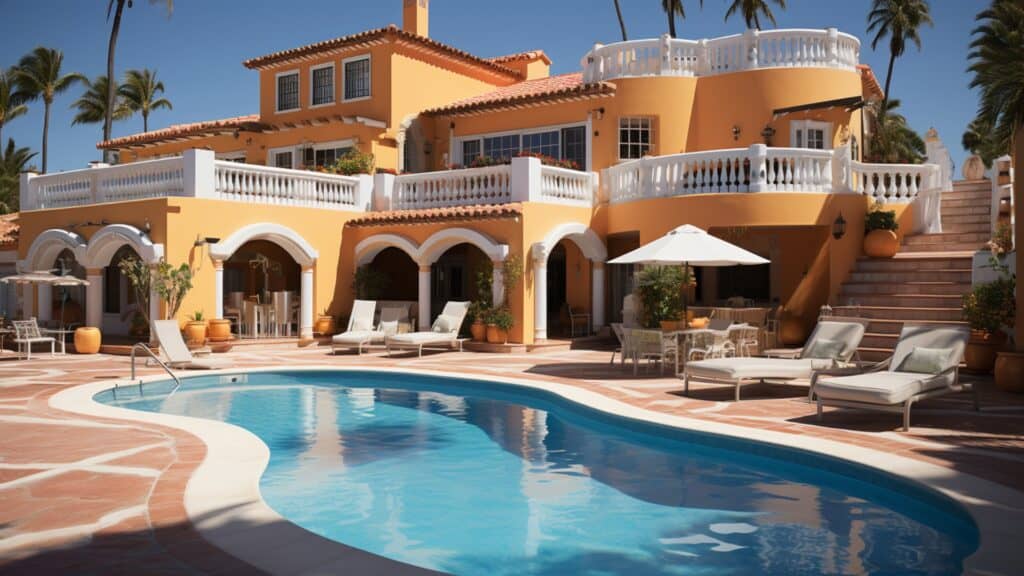
Benefits of Investing in Tropical Locations
Investing in tropical locations comes with its own set of advantages and to some may be considered one of the best places to buy.
Aside from the opportunity to make an affordable real estate purchase of beautiful beachfront property, buying such great real estate in the tropics has the potential to discover the best investment.
RELATED CONTENT
Benefits of investing in tropical real estate:
1. Low Cost of Living: Many tropical locations offer a lower cost of living compared to developed countries. This can be advantageous for investors looking to purchase a property, live, or retire in a tropical paradise while enjoying a comfortable lifestyle at a more affordable price.
2. Tax Incentives: Some tropical countries offer attractive tax incentives to foreign investors, including exemptions or reductions in property taxes, capital gains taxes, or income taxes. These tax benefits can help investors maximize their return on investment.
3. Opportunity for Second Citizenship or Residency: Some tropical countries have citizenship or residency programs that allow foreign investors to obtain second passports or residency permits. This can provide additional benefits, such as visa-free travel, access to better healthcare, and education opportunities for children.
4. Growing Infrastructure: Many tropical locations are experiencing rapid development and infrastructure improvements. This can include the construction of new airports, roads, hotels, and amenities, which enhance the value and desirability of real estate in the area.
5. Diverse Investment Options: Tropical real estate offers a range of investment options, from luxury beachfront villas and resorts to affordable condominiums and land. Investors can choose the type of property that aligns with their budget, investment goals, and personal preferences.
Understanding the benefits and potential of investing in tropical real estate can be a rewarding and profitable adventure, and may possibly be one of the best places to invest. [1][2][3][4]

Factors to Consider
Buying a property in a tropical place can be an exciting opportunity, but it’s important to consider several factors before making a decision about the value of the property.
Key considerations to keep in mind:
Choosing the Right Location
Location is one of the most critical factors when investing in tropical real estate.
Consider the following aspects when selecting a location:
- Accessibility: Is the property easily accessible by road, air, or sea? Having convenient transportation options can increase the property’s value and rental potential.
- Natural Attractions: Look for locations with beautiful beaches, lush landscapes, and other natural attractions. These features can increase the property’s appeal to tourists and potential buyers.
- Infrastructure: Check the availability of basic amenities such as water, electricity, and internet connectivity. Additionally, consider the presence of healthcare facilities, schools, and shopping centers in the area.
- Tourism Potential: Research the area’s tourism industry and its growth potential. A thriving tourism sector can lead to higher rental yields and property appreciation.

Understanding the Local Real Estate Market
When looking for an investment property, having a good understanding of the local real estate market is crucial for making informed investment decisions when you want to buy real estate.
Along with factoring in expenses when buying real estate, other details must come into play when you want to invest.
Consider the following factors:
- Market Trends: Analyze historical data and current market trends to identify any fluctuations in property prices and rental demand. This can help you determine the potential appreciation of your investment.
- Rental Yields: Calculate the potential rental income based on the current market rates. Compare the rental yields with the purchase price to assess the investment’s profitability.
- Property Supply and Demand: Evaluate the balance between property supply and demand in the area. An oversupply of properties can lead to lower rental yields and slower appreciation.
- Future Development: Research any planned infrastructure developments or upcoming projects in the area. These developments can have a significant impact on the property’s value and rental potential.
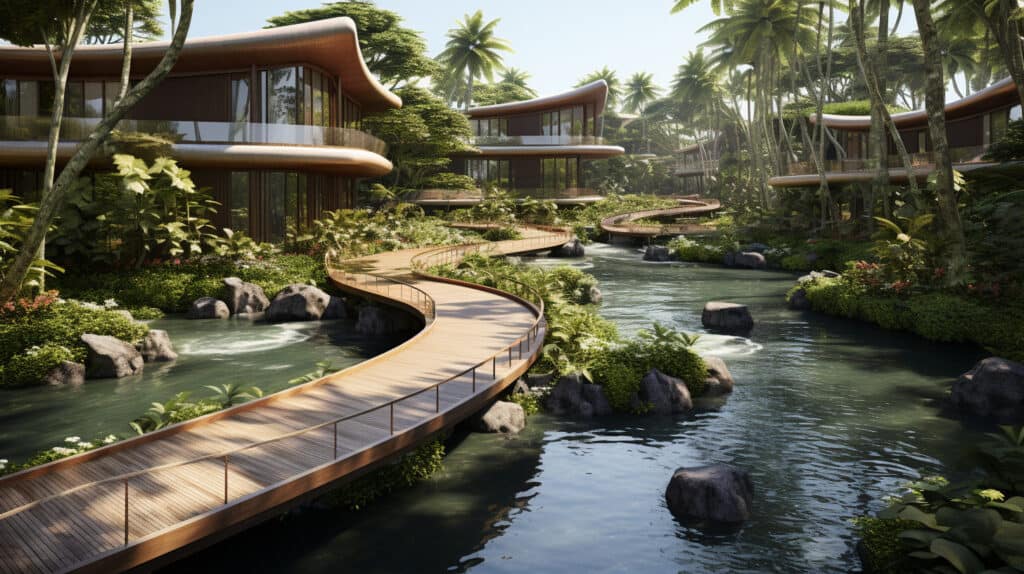
Legal and Regulatory Considerations
Before investing in tropical real estate, it’s essential to understand the legal and regulatory framework in the country or region. Consider the following:
- Foreign Ownership: Research the laws regarding foreign ownership of property in the country. Some countries have restrictions on foreign ownership, while others may require special permits or partnerships with local residents.
- Taxation: Understand the tax implications of investing in tropical real estate, including property taxes, capital gains taxes, and any other applicable taxes. Consult with a local tax expert to ensure compliance with the regulations.
- Property Rights: Verify the property rights and ownership structure to avoid any disputes or legal issues. Engage the services of a reputable local lawyer to handle the due diligence process and ensure a smooth transaction.
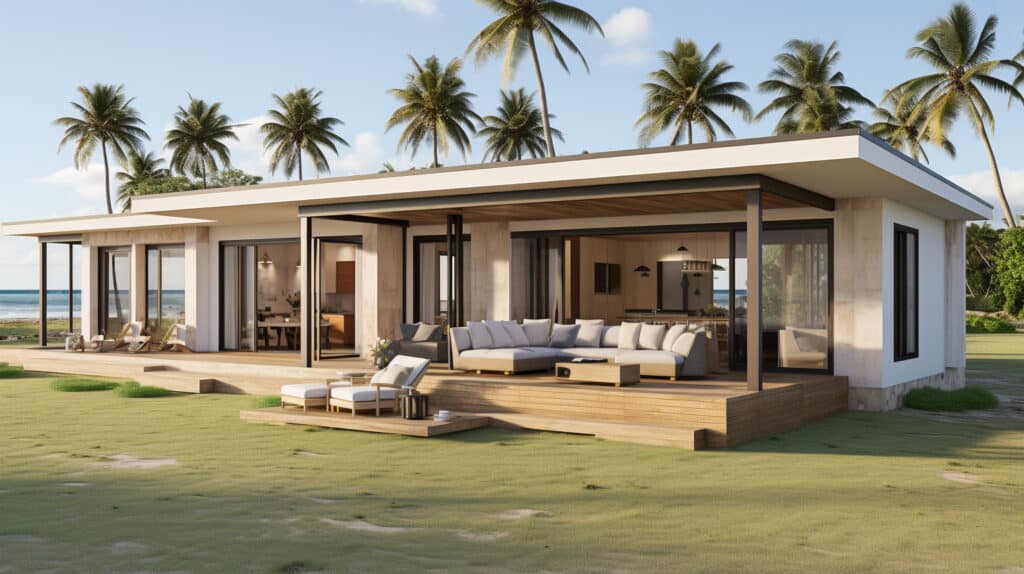
Types of Tropical Real Estate Investments and Real Estate Market Rental Income Potential
When looking to buy properties in tropical parts of the world, and possibly trying to make one of the best investment decisions of your life, there are several options to consider while looking at a range of real estate.
The most common types of tropical, emerging real estate opportunities:
Residential Properties
Investing in residential properties is a popular choice for those looking to own a vacation home or a permanent residence in a tropical destination.
Residential properties can range from small condos and apartments to large luxury villas.
Consider factors such as location, rental opportunities, and property management options.

Vacation Rentals and Airbnb
Another lucrative option in tropical real estate investment is vacation rentals and Airbnb properties.
With the rise of the sharing economy, renting out vacation properties has become a popular way to generate income.
When purchasing properties in popular tourist destinations, investors can capitalize on the high demand for short-term rentals.
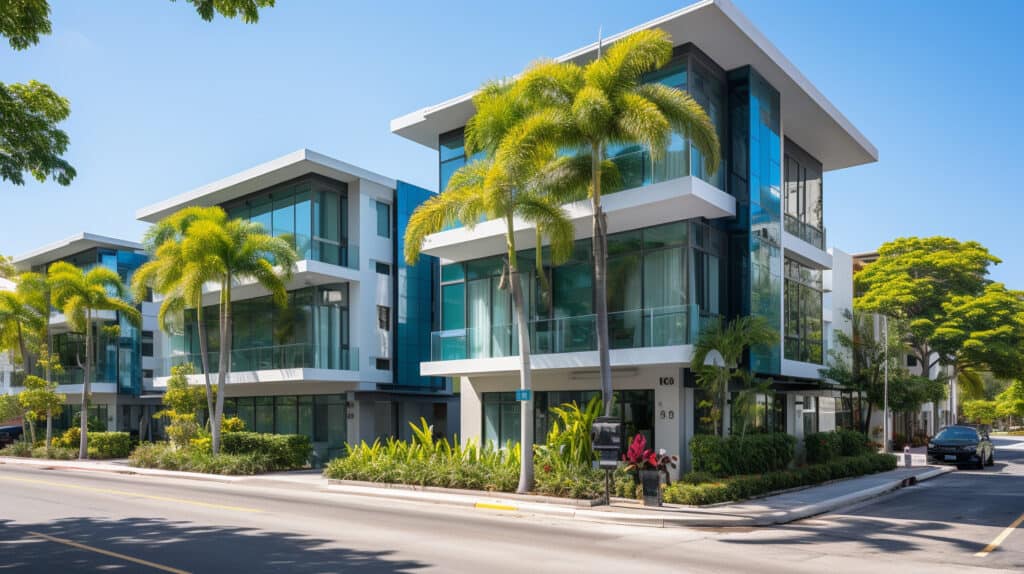
Commercial Properties
Investing in commercial properties, such as hotels, resorts, and restaurants, can offer a steady stream of income, especially in popular tourist destinations.
Commercial properties often require a larger investment upfront but can provide significant returns on investment.
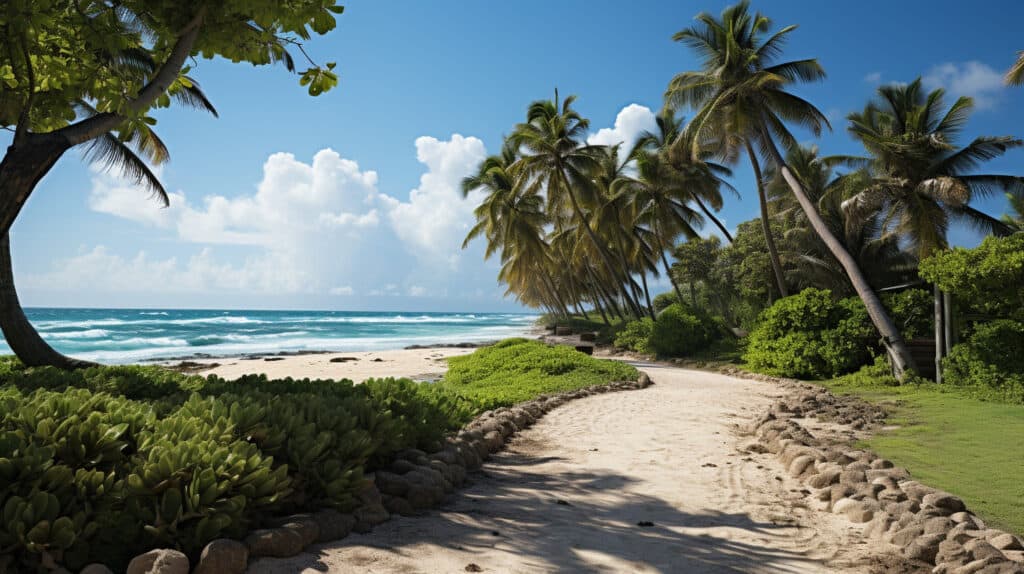
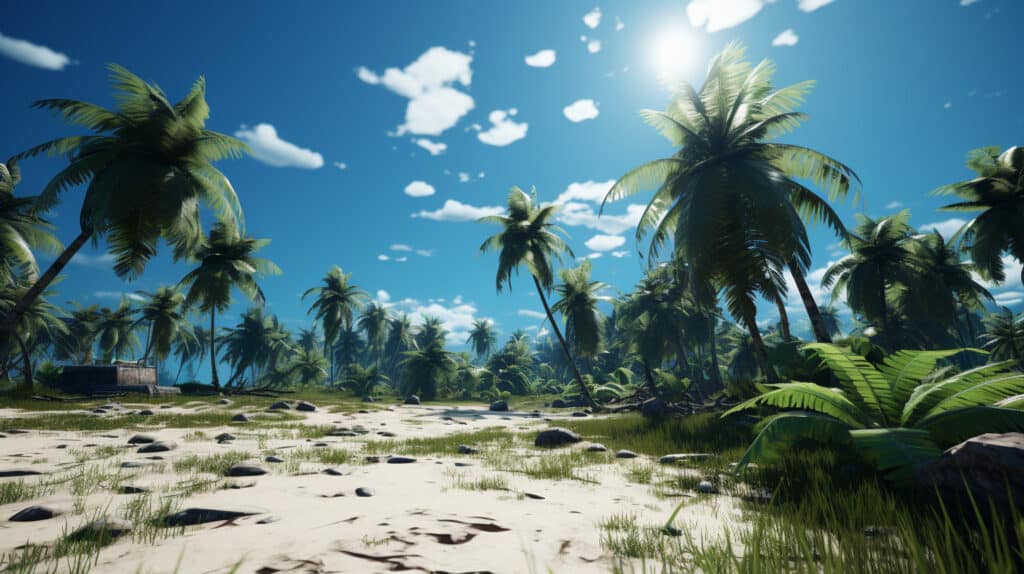
Land and Development Projects
Investing in land and development projects can be a long-term investment strategy in tropical real estate.
Buying undeveloped land in up-and-coming areas can be a smart investment as the value of the land may increase over time.
Development projects, such as building residential or commercial properties, can also yield substantial returns if done correctly.
Investing in land and development projects requires thorough research and due diligence to ensure the potential for growth and profitability.
It’s important to note that each type of tropical real estate investment comes with its own set of risks and considerations.
It’s crucial to conduct thorough market research, seek professional advice, and assess your own investment goals and risk tolerance before making any investment decisions. [11][12][13][14][15][16][17][18]
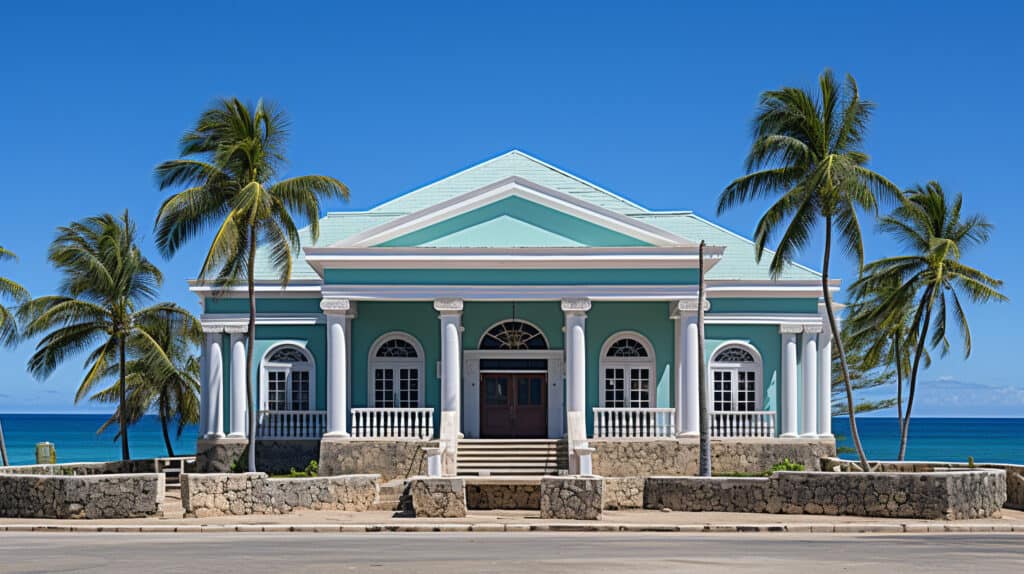
Financing Options
When it comes to investing in tropical real estate, there are various financing options available to consider.
Ways to finance your tropical real estate investment:
Traditional Financing from Banks
One of the most common financing options for real estate investments is traditional financing from banks.
This involves obtaining a mortgage loan from a bank or financial institution to purchase the property.
Key points to consider:
- Banks typically require a down payment of around 20% to 30% for investment properties.
- You’ll need to meet certain criteria, such as having a good credit score, a steady income, and a low debt-to-income ratio.
- The interest rates for these loans can vary but are generally competitive compared to other financing options.
- You’ll need to provide financial documentation and go through the mortgage application process.

Private Lenders and Investors
Another option is to secure financing from private lenders or individual investors.
This involves borrowing money from individuals or groups who are willing to invest in your real estate project.
Private lending points to consider:
- Private lenders and investors may be more flexible in their lending criteria compared to traditional banks.
- Interest rates and terms will vary depending on the agreement between you and the lender/investor.
- You’ll need to showcase the potential profitability of your investment and have a solid business plan in place.
- It’s essential to thoroughly research and vet potential lenders/investors to ensure their legitimacy and credibility.

Crowdfunding and Real Estate Investment Platforms
Crowdfunding and real estate investment platforms have gained popularity in recent years as a way to fund real estate projects.
These platforms allow multiple investors to contribute smaller amounts of money to collectively finance a property.
Key crowdfunding points to consider:
- Crowdfunding platforms typically have minimum investment requirements and may have eligibility criteria for investors.
- These platforms provide an opportunity to diversify your investment by pooling funds with other investors.
- Returns on investment can vary depending on the specific project and platform.
- It’s essential to thoroughly research and choose reputable crowdfunding platforms with a track record of successful projects.
When exploring financing options for your tropical real estate investment, consider your financial situation, investment goals, and risk tolerance.



Tips for Successful Tropical Real Estate Investment
Investing in tropical real estate can be an exciting and lucrative opportunity for investors.
It’s important to approach this type of investment with caution and take necessary precautions.
Tips for successful tropical real estate investment:
Conduct Due Diligence and Research
Before investing in tropical real estate, it is crucial to conduct thorough due diligence and research.
This includes:
1. Local Laws and Regulations: Familiarize yourself with the local laws and regulations governing real estate investment in the tropical location you are interested in. This will ensure that you are aware of any restrictions or requirements that may affect your investment.
2. Property Valuation and Market Analysis: Analyze the property values and market trends in the area. Consider factors such as demand, rental potential, and growth prospects. This will help you determine the potential return on investment and make informed decisions.
3. Risk Assessment: Assess the potential risks associated with the tropical location, such as natural disasters, political instability, or economic volatility. Consider factors that may impact the value and stability of your investment.

Work with Local Real Estate Professionals
When investing in tropical real estate, it is highly recommended to work with local real estate professionals who have extensive knowledge and experience in the local market.
Here’s why:
1. Local Market Expertise: Local real estate professionals can provide valuable insights into the local market dynamics, trends, and opportunities. They can help you navigate the local laws, regulations, and customs.
2. Property Selection: Real estate professionals can assist you in finding properties that align with your investment goals, whether you are looking for vacation rentals, commercial properties, or residential homes.
3. Negotiations and Transactions: Local professionals can help facilitate negotiations and handle the paperwork and legal processes involved in the purchase or sale of tropical real estate.


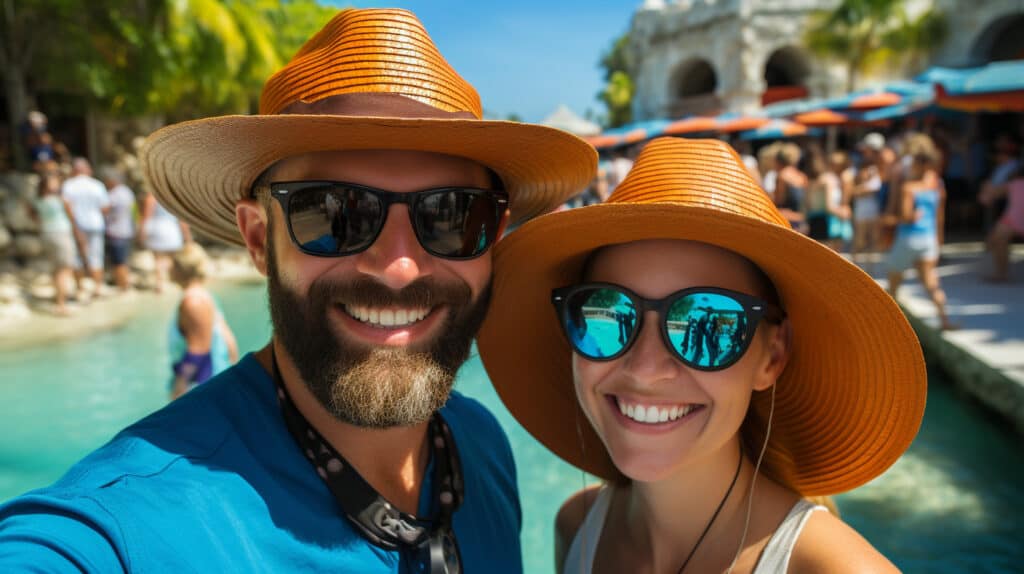
Diversify Your Portfolio
Diversification is a key principle in investment strategy and applies to tropical real estate investment as well.
Consider diversifying your real estate portfolio by investing in different locations or property types.
This can help spread the risks and increase potential returns.
Options for diversifying your tropical real estate portfolio may include:
1. Different Tropical Locations: Consider investing in properties in different tropical locations to mitigate the risks associated with a single location. This can include diversifying across different countries or islands.
2. Various Property Types: Explore different property types such as residential homes, vacation rentals, commercial properties, or land investments. Diversification can help protect your portfolio from unforeseen events or downturns in a specific location or property type.
Diversifying your portfolio can increase the chances of a successful tropical real estate investment. [25][26][27][28][29][30]

Overcoming Challenges
Investing in tropical real estate may come with certain challenges that investors need to overcome to ensure a successful venture.
Continue reading to see some common challenges and how to address them.
Managing Remote Properties
After the deal has closed and the property is sold, the next major consideration should be the task of property management. Investing in tropical properties often involves managing properties from a distance.
This can pose logistical challenges, especially when it comes to property maintenance, tenant management, and emergency response.
Tips to help you manage remote properties effectively:
- Utilize technology: Remote property management can be made easier through the use of technology. Explore property management software, smart home devices, and remote monitoring systems to oversee property operations remotely.
- Build a reliable network: Establish relationships with local property managers (learn what the management company is responsible for), contractors, and service providers who can assist with property maintenance and tenant needs. Conduct thorough research and select trustworthy professionals to ensure efficient management.
- Develop clear communication channels: Establish effective communication channels with tenants and property managers. Use email, phone calls, or video conferencing to stay connected and address any concerns promptly.
- Create emergency plans: Develop emergency response plans that include contact information for local authorities, service providers, and emergency services. Educate tenants on emergency procedures and ensure they have access to necessary information.


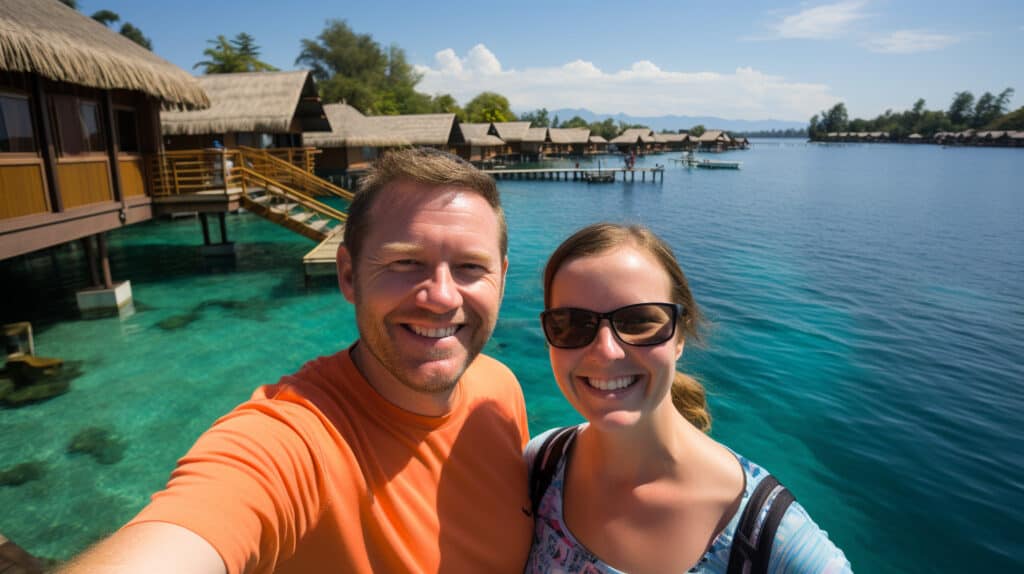
Dealing with Climate and Natural Disasters
Tropical regions are prone to climatic events and natural disasters such as hurricanes, floods, and earthquakes.
This is a serious subject to keep in mind when purchasing real estate in these areas of the world.
Here’s how you can mitigate the risks:
- Research and assess risks: Conduct thorough research on the specific location and understand the region’s history of natural disasters. Consult local experts and authorities to gain insights into risk assessment and preparedness measures.
- Invest in insurance: Obtain comprehensive insurance coverage that includes protection against natural disasters. Consult with insurance professionals to ensure appropriate coverage for your investment property.
- Implement disaster preparedness measures: Take preventive actions to protect your property, such as reinforcing structures, implementing drainage systems, or installing hurricane shutters. Develop plans for evacuation, emergency supplies, and communication during natural disasters.
- Stay informed: Monitor weather forecasts and stay updated on local alerts and warnings. Establish a communication network with local authorities and neighbors to receive timely information and assistance.


Understanding Cultural and Language Differences
Investing in tropical places may involve navigating cultural and language barriers.
How to overcome these challenges:
- Cultural awareness: Familiarize yourself with the local culture, customs, and business practices. Be respectful and adaptable to cultural differences, and seek guidance from local experts or consultants if necessary.
- Language skills or translation assistance: Consider learning the local language or hiring interpreters to facilitate communication with local stakeholders. This can help build trust and facilitate smooth transactions.
- Local partnerships: Collaborate with local professionals, real estate agents, or attorneys who can provide guidance and support in navigating legal processes, local regulations, and cultural nuances.

Conclusion: A Chance to Leave a Tropical Legacy
As a real estate investor investing in tropical real estate, it can be a rewarding and profitable venture, offering the opportunity to own a piece of paradise and generate income through rental or resale.
If you’re looking to invest in real estate, prices in these parts of the world can greatly enhance real estate sales making it a potentially thriving real estate venture.
Factors such as undeveloped land and bargain price points in the tropical property market can drastically enhance your property investment experience, therefore giving you even more opportunities for real estate deals.
Here are a few final thoughts and recommendations for you to consider as you think of investing in tropical real estate:
- Research and due diligence: Just like any other investment, it’s crucial to conduct thorough research and due diligence before committing to a property. This includes understanding the local real estate market, legal requirements, property values, and potential risks.
- Location: The location of the property is key. Look for tropical destinations that have a strong tourism industry, beautiful beaches, and natural attractions. Consider factors such as accessibility, infrastructure, and growth potential.
- Property management: If you plan on renting out the property, it’s essential to have a reliable property management team in place. They will handle everything from marketing and booking to maintenance and guest services, ensuring a seamless experience for both you and your guests.
- Financing options: Explore different financing options available for purchasing tropical real estate, such as local banks, international lenders, or even seller financing. Consult with a financial advisor to determine the best approach for your circumstances.
- Consider tax implications: Real estate investments often come with tax implications. Consult with a tax professional to understand the local tax laws and potential tax benefits or obligations associated with owning and renting out a property.

The Future of Tropical Real Estate Investment
The future of tropical real estate investment looks promising as more and more people seek out vacation homes and rental properties in exotic locations.
Trends to keep an eye on:
- Sustainable and eco-friendly properties: With the increasing focus on sustainability and environmental conservation, there is a growing demand for eco-friendly properties in tropical destinations. Investing in properties that align with these values can attract environmentally conscious travelers and generate higher rental income.
- Remote work: The rise of remote work and digital nomadism has opened up new possibilities for owning and investing in tropical real estate. People are seeking out destinations that offer a high quality of life, beautiful surroundings, and reliable internet connections, making tropical locations even more attractive.
- Growing tourism industry: Tropical destinations are often popular tourist spots, and the tourism industry is expected to continue growing. This can drive demand for vacation rentals, leading to higher occupancy rates and rental income potential.
- Infrastructure development: As tropical destinations continue to grow in popularity, governments and private investors are investing in infrastructure development, including airports, roads, and utilities. This can enhance accessibility and increase property values in these areas.
Investing in tropical real estate can be a lucrative and enjoyable experience.
Keep in mind that it’s very important to carefully consider all the factors as well as do your due diligence to make informed decisions.
If the basic tips you’ve read throughout this article are executed and combined with understanding the local market, staying up-to-date with trends, and working with experienced professionals, you can maximize the potential of your investment and enjoy the benefits of tropical living for you and for your coming generations. [37][38][39][40]
No related posts.

